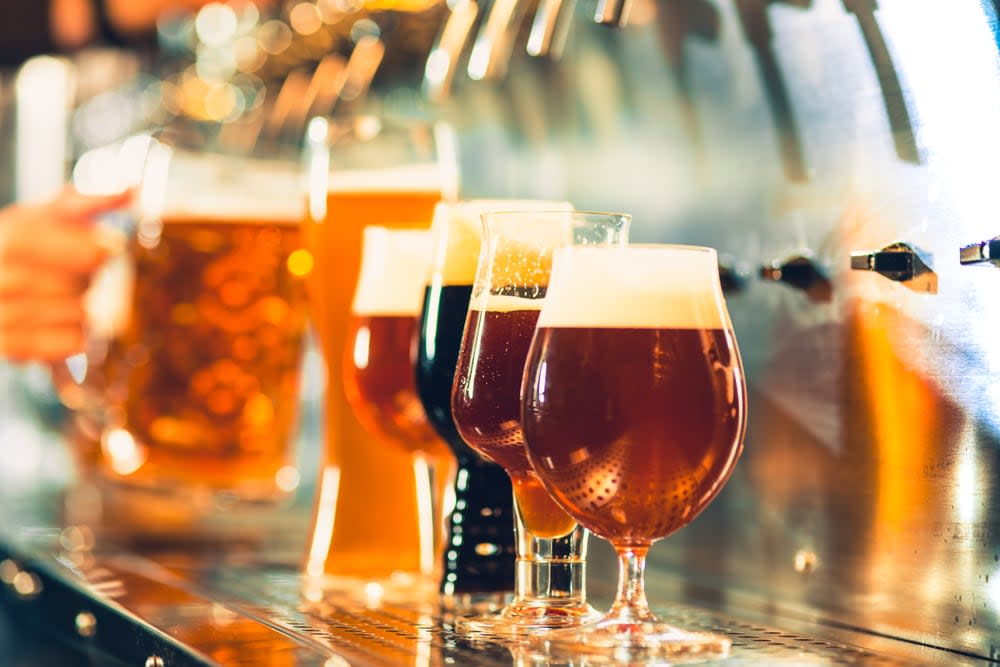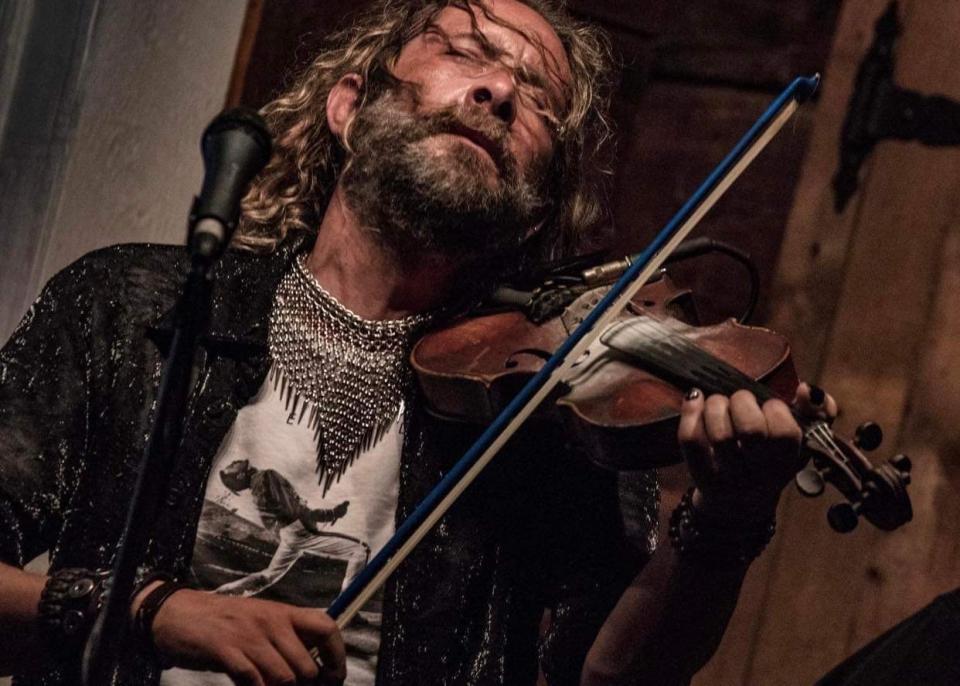For some musicians, drinking on stage is just another day at the office

Island musician Richard Wood remembers going to a bar for a sound check in the afternoon, hours before he would go on stage, and drinking a beer.
It was easy, accessible and usually on someone else's tab.
When he came back in the evening for the gig, excitement was building. People were drinking and laughing, already half in the bag.
Maybe he'll join them for another round. The only difference was, Wood was at work.
"There's no other job, if you're working in an office where, if you're doing a great job, somebody comes in and puts a beer down, it sits beside you and you continue on. You know, 'You're doing a great job,' and away you go," Wood said.
"But with the music business, it is such a big part of it."

Richard Wood says drinking can take a toll mentally and physically on musicians. (Richard Wood)
That inherent relationship between alcohol and the music industry has spurred the new initiative from the East Coast Music Association called Pledge to Pause. It encourages people to take the month of January to reflect on the impact of alcohol on their lives and careers.
Expected to 'bring the party'
Errin Williams, a licensed clinical therapist and social worker with the ECMA, said musicians might not even notice that it could be a concern or problem. It's different for audience members, who might be going out once or twice a month to see a show and have some drinks.
"But for that musician, that's … maybe three, four days a week for them and they're expected to bring the party when they can bring the party with their talent."
Wood has been sober for several years, but he said when he started drinking heavily around 2004, after the death of his father, it took him down a "really dark path" for a few years.
"It takes its toll on your body, takes its toll mentally. The whole just being sick, feeling sick, you know, shivering, you're sweating, trying to get up for early morning flights, trying to navigate your way through and that … becomes a real problem."
Wood, a fiddler who performs high-energy shows, needs his mind and body to be at their best when he's on stage. He said alcohol will always be present at music festivals and venues such as bars or nightclubs, so musicians need to find ways to deal with the temptation.
ECMAs in Charlottetown
The Pledge to Pause initiative is a way for musicians to check in on themselves, to see if they can go the month without drinking or "white-knuckling" their way through it.
"It's super important because in this business … it can really, really sneak up on you really, really quick."
The East Coast Music Awards will be held in Charlottetown May 1-5.

 Yahoo News
Yahoo News 
